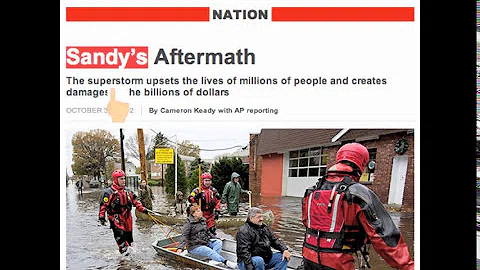assignment_returnWorksheet:
Cite Textual Evidence To Support Analysis
Standard(s): RI.6.1
Everywhere around us, there are millions of tiny living things called germs. They are so tiny that they can be seen only under the most powerful microscope. Some of these germs are no wider than twenty-five thousandths of an inch!
Louis Pasteur, the great French scientist, was the first to prove that germs exist. The germs in the air can be counted. The number of germs around us, especially in crowded rooms, is tremendous. Certain scientists counted 42,000 germs in approximately one cubic meter of air in a picture gallery when it was empty. But when the gallery was crowded with people, they found nearly 5,000,000 germs in the same place. In the open air germs are less abundant. There are fewer germs in country air than in town air. We see at once how important it is, therefore, to live as much as possible in the open air, and for the rooms we live in to always be well ventilated by fresh air.
According to the passage, where will you find more germs?
In crowded spaces.
In the country.
In hospitals.
In empty rooms.
Standard: RI.6.1
Domain: Reading: Informational Text
Theme: Key Ideas and Details
Description: Cite textual evidence to support analysis of what the text says explicitly as well as inferences drawn from the text.
Everywhere around us, there are millions of tiny living things called germs. They are so tiny that they can be seen only under the most powerful microscope. Some of these germs are no wider than twenty-five thousandths of an inch!
Louis Pasteur, the great French scientist, was the first to prove that germs exist. The germs in the air can be counted. The number of germs around us, especially in crowded rooms, is tremendous. Certain scientists counted 42,000 germs in approximately one cubic meter of air in a picture gallery when it was empty. But when the gallery was crowded with people, they found nearly 5,000,000 germs in the same place. In the open air germs are less abundant. There are fewer germs in country air than in town air. We see at once how important it is, therefore, to live as much as possible in the open air, and for the rooms we live in to always be well ventilated by fresh air.
Which of the following statements can be concluded after reading the passage?
Louis Pasteur liked counting germs.
Germs are too small to be seen.
People have germs.
Fresher air has fewer germs.
Standard: RI.6.1
Domain: Reading: Informational Text
Theme: Key Ideas and Details
Description: Cite textual evidence to support analysis of what the text says explicitly as well as inferences drawn from the text.
George Washington was the first and most popular U.S. President. He was the only one elected by a unanimous vote. It is often said of him that he was “first in war, first in peace, and first in the hearts of his countrymen.” Washington led comparatively untrained and ill-equipped American soldiers to victory over the well-trained British in the Revolutionary War. As soon as the Constitution was ratified, he was chosen to be President.
Many of the generals who had fought under Washington did not believe that the 13 colonies could cooperate to form a single country without the strong leadership of a king. They approached him, saying that they would support him as King George I of the United States. Washington was dismayed at the idea and asked the generals to promise never to mention it again. He served two terms as President and refused a third term, retiring to his farm in Virginia. When England’s King George heard that Washington had voluntarily given up the power of the presidency, he said, “If that is true, he is the greatest man in history.”
How does the author show that George Washington is a great man?
He led untrained soldiers into battle.
He was unanimously elected president.
He voluntarily gave up the power of the presidency.
All of the above.
Standard: RI.6.6
Domain: Reading: Informational Text
Theme: Craft and Structure
Description: Determine an author
George Washington was the first and most popular U.S. President. He was the only one elected by a unanimous vote. It is often said of him that he was “first in war, first in peace, and first in the hearts of his countrymen.” Washington led comparatively untrained and ill-equipped American soldiers to victory over the well-trained British in the Revolutionary War. As soon as the Constitution was ratified, he was chosen to be President.
Many of the generals who had fought under Washington did not believe that the 13 colonies could cooperate to form a single country without the strong leadership of a king. They approached him, saying that they would support him as King George I of the United States. Washington was dismayed at the idea and asked the generals to promise never to mention it again. He served two terms as President and refused a third term, retiring to his farm in Virginia. When England’s King George heard that Washington had voluntarily given up the power of the presidency, he said, “If that is true, he is the greatest man in history.”
According to the text, why was Washington considered the most popular president?
King George I said, “He is the greatest man in history?”
He was elected president by a unanimous vote.
He wanted to be a powerful man and king.
He was the first president.
Standard: RI.6.1
Domain: Reading: Informational Text
Theme: Key Ideas and Details
Description: Cite textual evidence to support analysis of what the text says explicitly as well as inferences drawn from the text.
George Washington was the first and most popular U.S. President. He was the only one elected by a unanimous vote. It is often said of him that he was “first in war, first in peace, and first in the hearts of his countrymen.” Washington led comparatively untrained and ill-equipped American soldiers to victory over the well-trained British in the Revolutionary War. As soon as the Constitution was ratified, he was chosen to be President.
Many of the generals who had fought under Washington did not believe that the 13 colonies could cooperate to form a single country without the strong leadership of a king. They approached him, saying that they would support him as King George I of the United States. Washington was dismayed at the idea and asked the generals to promise never to mention it again. He served two terms as President and refused a third term, retiring to his farm in Virginia. When England’s King George heard that Washington had voluntarily given up the power of the presidency, he said, “If that is true, he is the greatest man in history.”
Based upon the above story about George Washington, which of the following words best describe him?

